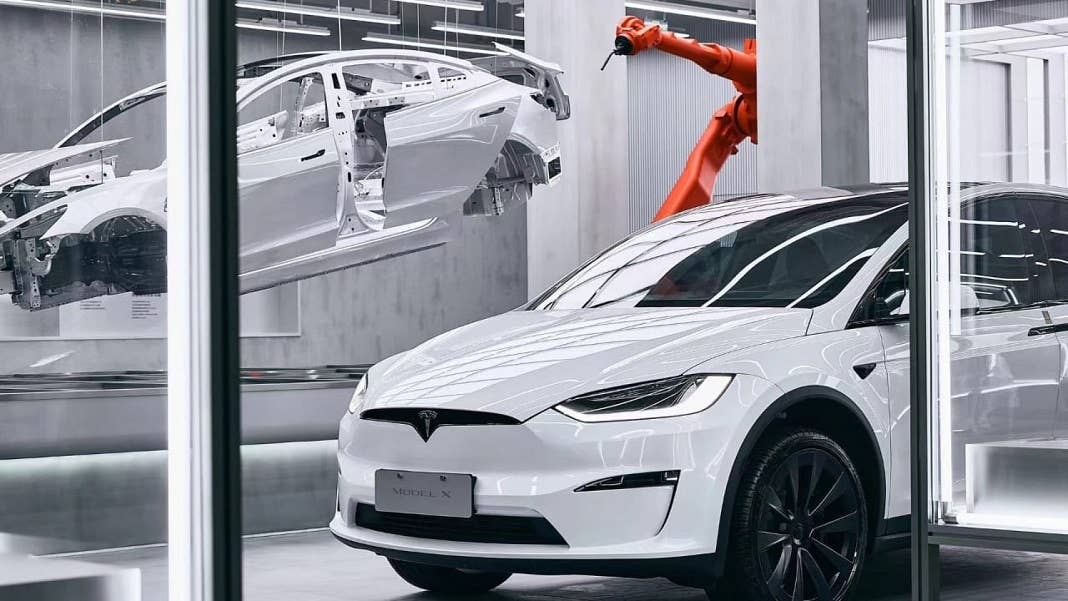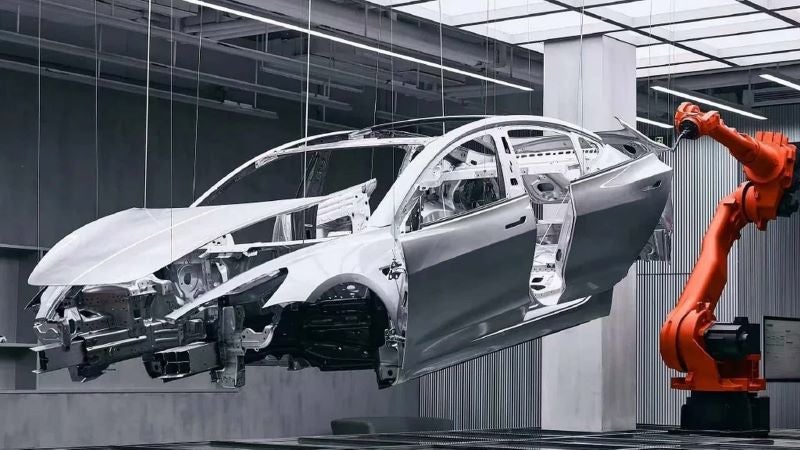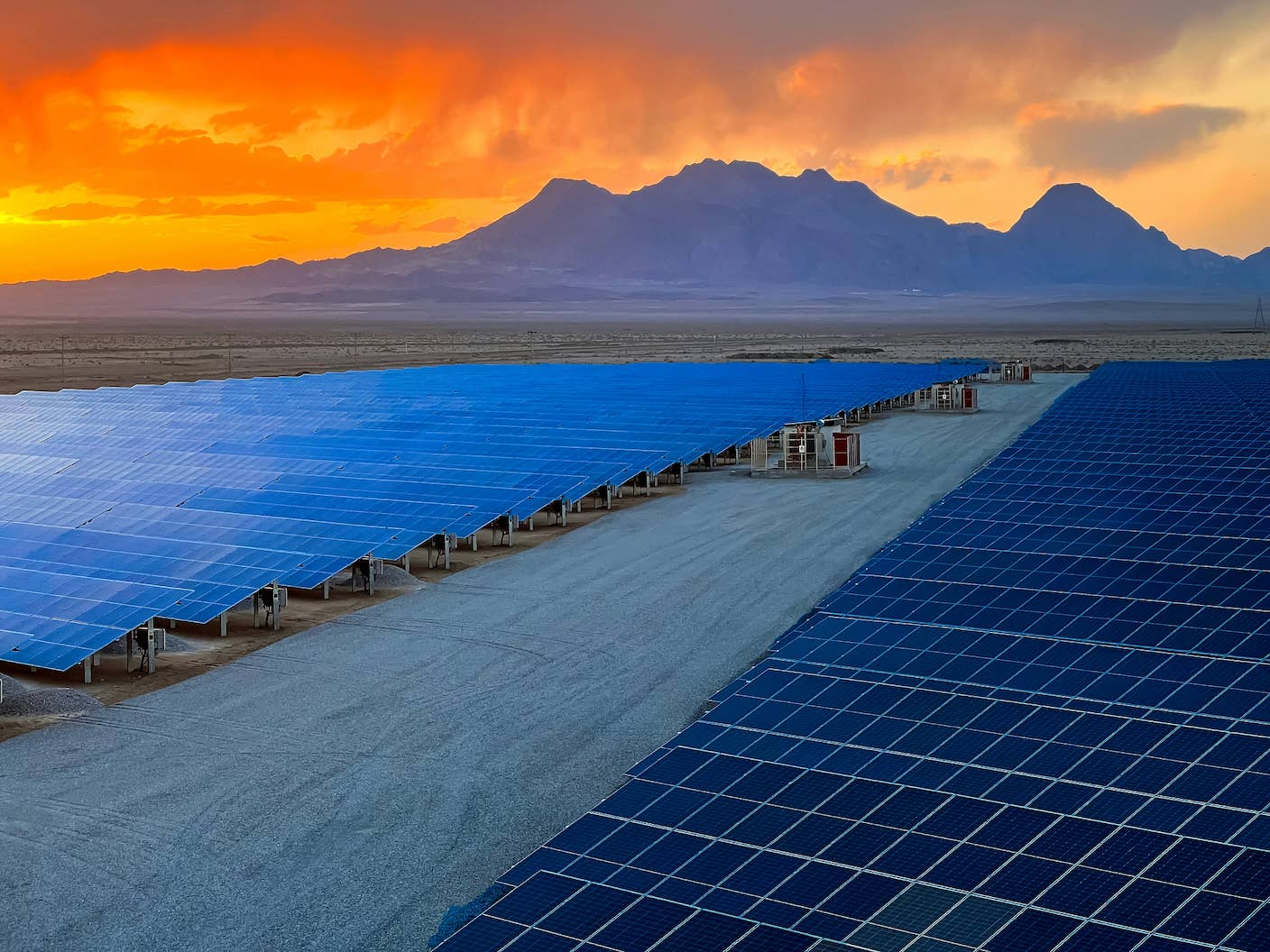New Tesla Concept Store Shows How Its Electric Cars Are Built in 45 Seconds

Share
Last year, 60 percent of the electric cars sold in the world were purchased in China. The country is by far the world’s biggest market for electric vehicles, due partly to the availability of small, cheap EVs like the Wuling Hong Guang Mini (which costs just over $4,000). Tesla is determined to get a big piece of China’s EV pie, and over the weekend the carmaker launched what’s essentially a major marketing effort: a concept store that aims to wow potential auto buyers with gleaming displays and demonstrations of its manufacturing process.
Called the Giga Lab, the store is located in Chengdu, a city in central China. Chengdu is over 1,000 miles west of Shanghai, where a Tesla Gigafactory rolled its millionth car off the production line a little under a year ago. The Giga Lab is actually modeled on the Shanghai Gigafactory, as a tweet from Tesla Asia revealed on Saturday, adding that visitors to the new store “can feel the hardcore beauty of Tesla.”
The company announced the store’s opening on the Chinese social media platform Weibo, writing that Giga Lab offers “an immersive experience of the magic of building a car in 45 seconds.” Photos show a wheel-less, in-process Model 3 body suspended in midair, and displays showing off electric motors, inverters, and assembly robots. To demonstrate how the cars are built, a robotic arm moves around the Model 3 attaching panels to it, presumably in the same way it’s done in the factory.

Inside the Giga Lab. Image Credit: Tesla
Tesla is eager to promote its cars to Chinese consumers. Though it’s one of the top EV sellers in the country, it’s been outpaced by companies like Wuling and BYD. BYD sold five times as many cars (including all-electric and hybrids) as Tesla in the first five months of this year. Its Qin Plus EV starts at $18,900; meanwhile, Tesla recently raised the price of its Model 3 in China to $33,549.
Be Part of the Future
Sign up to receive top stories about groundbreaking technologies and visionary thinkers from SingularityHub.


The Chinese government has heavily encouraged consumers to buy electric cars through subsidies, and set a target in 2020 to have “new energy vehicles” (NEVs, which includes battery-powered as well as hybrid cars) account for 20 percent of the country’s annual new car sales by 2025. Car company executives were even more bullish—BYD founder Wang Chuanfu said in 2021 that NEVs will take 70 percent of China’s new car market share by 2030, and Nio founder William Li upping the ante to 90 percent.
Lo and behold, as of March of this year, electric cars accounted for 34 percent of the country’s car sales. Though Tesla isn’t the top seller, its Model Y is top-ranked by Chinese drivers—and the Chengdu Giga Lab will surely accomplish its goal of generating buzz among potential car buyers.
China’s dense urban areas may be more well-suited to electric cars than American cities, where many people commute in from suburbs, particularly given that charging infrastructure and battery storage capacity still need to make major strides before EVs are as convenient as gas-powered cars.
Globally, more than 10 million electric vehicles were sold last year, making up 13 percent of all car sales. That’s expected to grow to 18 percent this year, and China is to thank for the bulk of it. Perhaps Tesla’s sleek Giga Lab will soon convince even more car buyers to go electric.
Image Credit: Tesla
Vanessa has been writing about science and technology for eight years and was senior editor at SingularityHub. She's interested in biotechnology and genetic engineering, the nitty-gritty of the renewable energy transition, the roles technology and science play in geopolitics and international development, and countless other topics.
Related Articles

This Week’s Awesome Tech Stories From Around the Web (Through February 28)

Sparks of Genius to Flashes of Idiocy: How to Solve AI’s ‘Jagged Intelligence’ Problem

US Solar Surged 35% in 2025, Overtaking Hydro for the First Time
What we’re reading